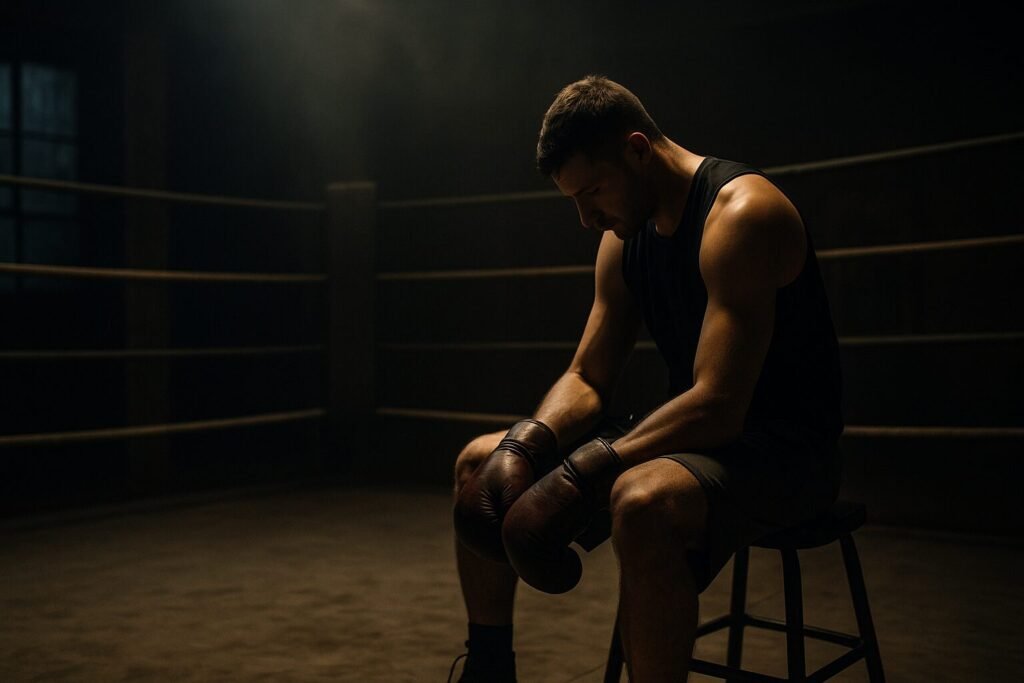Let’s get one thing straight: boxing loyalty is a fairy tale. It sounds noble, it sounds romantic — but it’s rarely real.
When a fighter is winning, they’re loved, protected, and promoted as a “star of the sport.” But when the losses come, or the money slows down, the loyalty fades faster than a cutman’s towel. The industry moves on without even looking back.
And that’s not just cynical — it’s the truth.
When the Going Gets Tough, the Team Gets Going
You can name a few loyal partnerships — Joe Calzaghe and Enzo Calzaghe, Carl Froch and Rob McCracken — but those are rare. For every long-term partnership that worked, there are ten that didn’t survive a defeat.
Anthony Joshua, Amir Khan, George Groves, Ricky Hatton — all changed trainers after tough losses, often blaming preparation, mindset, or tactics. But how many times can you hit reset before asking if the issue lies elsewhere?
At some point, fighters have to own their mistakes inside the ropes. Because you can change your corner team, but you can’t change who throws the punches.
The Southpaw Parallel — A Hollywood Story with Real Lessons
Yes, Southpaw is a Hollywood film. But it told a truth boxing fans recognise instantly: when you’re no longer a money-maker, the sport leaves you behind.
When Billy Hope lost everything, his so-called “friends” vanished overnight. No entourage, no sponsors, no calls. That wasn’t fantasy — that was a mirror held up to the boxing world.
We’ve seen that story play out for real countless times. Boxing Highs and Lows explored how fighters go from headlining arenas to struggling for relevance in a matter of months. When you’re winning, you’re loved. When you’re not, you’re forgotten.
That’s the emotional tax of boxing. You don’t just fight opponents — you fight the industry’s short memory.
Promoters, Broadcasters, and Fans — It’s All Conditional
Promoters aren’t loyal; they’re opportunistic. They’ll call you “family” one day and “former prospect” the next. Fighters are investments, not friends.
Fans are no better — one bad night and they’ll turn on you in the comments. Look at Joshua vs Ruiz, Brook vs Golovkin, or even Khan vs Crawford. Overnight, admiration turns to mockery.
And that’s the cycle every fighter has to accept. Boxing doesn’t reward loyalty — it rewards victory.
The Trainer Blame Game
The oldest tradition in boxing after a loss? Sack the trainer.
It’s easier to blame the corner than face your own flaws. But constant change rarely builds progress. Anthony Joshua’s revolving door of coaches — McCracken, Garcia, Fernandez, Davison — proves that success isn’t about swapping trainers, it’s about consistency and accountability.
Sometimes loyalty to a flawed setup is better than chasing the illusion of a quick fix.
After the Final Bell — Where Loyalty Really Matters
Here’s where it gets real. Because loyalty doesn’t just vanish after a loss — it vanishes after retirement.
Boxing is full of ex-champions who gave everything to the sport, only to be forgotten when their earning power disappeared. There’s no pension, no safety net, and far too few support systems for those who fall through the cracks.
That’s why organisations like Ringside Charitable Trust exist — to provide care, housing, and financial help for retired fighters struggling with mental or physical health. It’s a lifeline for the men and women who were once cheered by thousands but now live in silence.
If the sport truly valued loyalty, that kind of support wouldn’t need to exist. Fighters would be looked after automatically, not as a charity case, but as a duty of care.
The Business That Eats Its Own
Boxing isn’t cruel because it wants to be — it’s cruel because it’s designed that way. Promoters, broadcasters, and sanctioning bodies are all chasing the same thing: money.
Fighters are treated like stock — valuable when trending, disposable when not. The moment you can’t sell tickets or pull TV numbers, you’re no longer part of the plan.
And that’s what makes boxing such a brutal paradox. It’s a sport that demands total loyalty from its fighters — loyalty to the grind, to the gym, to the fans — but offers almost none in return.
A Cold, Honest Truth
Boxing doesn’t do loyalty. It does business.
That’s not an attack on the sport — it’s a plea for honesty. The sooner we stop pretending that loyalty exists in an industry built on profit, the sooner we can start valuing fighters as people, not commodities.
Because for every world champion we celebrate, there’s a dozen retired pros quietly struggling to pay bills, still waiting for the sport to love them back.
Final Thoughts
Loyalty in boxing isn’t about sticking with a trainer or promoter — it’s about standing by the people who gave their lives to the sport long after the cameras stop rolling.
If boxing truly wants to evolve, that’s where it needs to start. Until then, loyalty will remain what it’s always been — a nice word that doesn’t survive defeat.
What do you think?
Is loyalty in boxing dead, or do we just need to redefine what it means? Share your thoughts below and visit CMBoxing.co.uk for more honest conversations about the sport — the triumphs, the heartbreaks, and everything in between.

